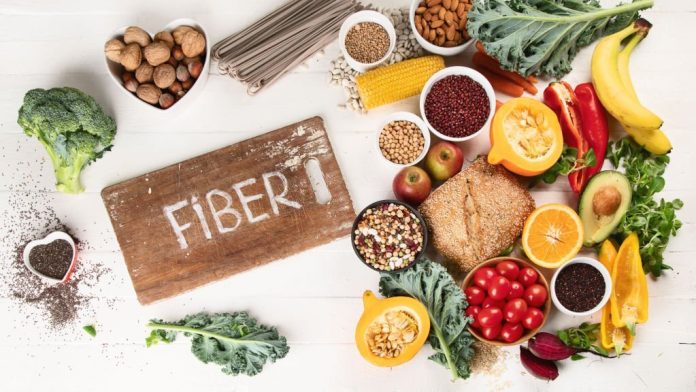When you hear “carbs,” you probably think of white bread, rice, and pasta, and think of these as foods to limit or avoid. But have you heard about complex carbohydrates and how they can be part of a healthy diet?
What are carbohydrates?
Everyone needs carbohydrates – they are the body’s preferred source of energy. They digest faster than protein and fat, giving your brain and muscles the fuel they need so you can think and move. How many carbohydrates you need in a day depends on your individual needs. The 2020-2025 Dietary Guidelines recommend that carbohydrates make up 45% to 65% of your daily calories. For example, if you eat 2,000 to 900 calories a day, about 900 calories should come from eating carbohydrates. This means about 1 to 300 grams of carbohydrates per day, most of which should come from healthy sources of complex carbohydrates.
What is the Difference Between Simple and Complex Carbs?
Simple carbohydrates (aka simple sugars) are quickly broken down by your body — they’re just one or two sugar molecules linked together. Honey (fructose and glucose), table sugar (sucrose), and milk (lactose) all contain simple carbohydrates.
Complex carbs contain more nutrients and take longer for your body to digest, so they help fill you up and don’t cause blood sugar swings like simple carbs. “Complex carbohydrates are larger molecules than simple carbohydrates, which means our bodies take longer to digest and absorb them. Grains
, legumes, fruits and vegetables (yes, even potatoes) contain complex carbohydrates. Carbohydrates. Many carbohydrate foods contain a mixture of carbohydrates; for example, fruit contains natural fruit sugar (fructose, a simple carbohydrate) as well as dietary fiber (also a carbohydrate). The healthiest carbohydrates include unrefined Plant-based foods that have low or no added sugar and are high in fiber — they’re what we tend to call complex carbohydrates and things we can use more of in our diets.
Why are complex carbs better than simple carbs?
There are several reasons to include complex carbohydrates in your diet:
Keeps you full longer and stabilizes blood sugar levels
Foods that consist primarily of simple carbohydrates — candy, pastries, and soda — provide an immediate source of energy. As a result, they’re digested quickly and send your blood sugar skyrocketing, leading to the post-sugar crash you’re probably familiar with and feeling hungry again not long after. Complex carbohydrates take longer to break down because of their larger molecular structure. The best ones also contain a lot of fiber, which moves slowly through the digestive tract. “Complex carbs are digested more slowly, helping us feel fuller and fuller for longer—so it can help with portion control and eating,” .
have more nutrition
“In addition to [regulating blood sugar], complex carbohydrates typically contain fiber, vitamins, minerals and antioxidants that simple carbohydrates do not,” said Dr. For example, sweet potatoes are rich in vitamin A, fiber, and antioxidants, while simple carbohydrates offer no healthy nutrients in the sugar.
Good for your heart and can help you lose weight
Foods rich in soluble fiber — the kind found in complex carbohydrates like apples and oatmeal — can help lower LDL, or “bad” cholesterol. The average American only eats about 15 grams of fiber per day , so eating 25 Up to 35 grams of fiber can help you lose weight and maintain it over the long term.
Ways to Eat More Complex Carbs
Complex carbohydrates can be a healthy part of every meal and snack. Pair them with protein and healthy fats for extra energy and satiety. Here’s an easy way to combine them.
don’t be afraid of potatoes
A medium potato (170 grams) has a whopping 2 grams of fiber, 3 grams of protein and 18 percent of your daily value for potassium. If you’re eating potatoes for dinner, serve them with nonstarchy vegetables like broccoli or Brussels sprouts ) and protein to fill the rest of the plate.
Choose Whole Grains Over Refined Grains
Whole grains like quinoa, farro, amaranth, barley, soba, whole-wheat pasta, and brown rice are complex carbohydrates that not only fill you up with fiber but also provide extra vitamins and minerals that you don’t usually get from white It is obtained from refined grain products such as rice or white pasta.
Add more plants to the plate
“You can’t underestimate the importance of eating more plants. If you’re looking for complex carbs, veggies … legumes [and] legumes are an obvious choice. Consider adding spiralized Root vegetables like sweet potatoes or parsnips, swap meat for beans (or half and half) in chili and burgers, or add cooked leafy greens to soups, egg scrambles, pastas, and sandwiches,” says Dr.
Simplify Your Snacks With Complex Carbs
Your snack is simple to make, yet full of complex carbohydrates. Thinly sliced apples or bananas served with peanut butter provide a healthy source of good carbohydrates. Or think outside the box and grab the beans. “Snack on high-fiber foods like roasted chickpeas or roasted fava beans,” Knott says.




